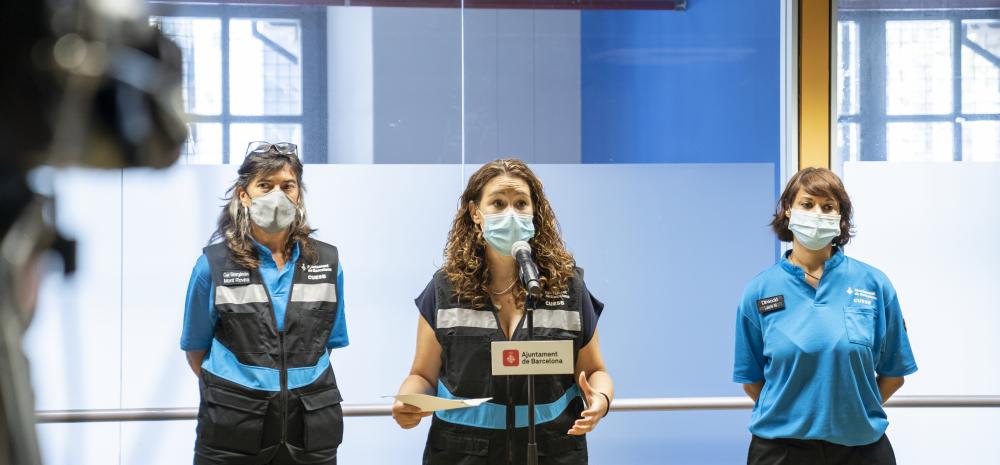
Urban planning from a social and gender perspective
Metropolis and CIDEU are two local government networks based in Barcelona that focus on strategic planning and metropolitan governance, two central means of improving our cities. The two organisations have teamed up to launch the course ‘Strategic Planning and Metropolitan Governance’, which combines the focus points of both organisations, while providing the lessons learned by each one. The networks share 18 members, which reinforces the need for joint work.
The course will help the member cities of both organisations respond to current urban challenges, as well as look ahead to planning in the future. One of the main problems for institutional policy is how difficult it is to devote time and resources to long-term policies, which will only show results when current policymakers have left office. However, the Covid-19 pandemic has highlighted the need to take action on current and future issues at the same time, which is what we are now doing in Barcelona.
In many respects, Barcelona has been an example of how to respond to the pandemic. When total lockdown began in Spain in March 2020, the priority for Barcelona City Council was to work towards complying with measures to stop the pandemic. We strengthened communication and made municipal facilities available to the health authorities to support a health system on the verge of collapse.
"We boosted online care for women living in domestic violence situations, who in many cases were forced to keep living with their aggressor."
The other big challenge was social. Lockdown suddenly left thousands of people in the city without an income, mainly informal workers. Social services had to double down their efforts: we created more than 700 shelters for the homeless, who had nowhere to spend lockdown. All this was possible thanks to the fact that Barcelona is the major Spanish city that invests the most in social policies, and thanks to the collaboration from numerous organisations from the city’s rich fabric of non-profit institutions. These actions had a positive gender impact, as 7 out of 10 people who came to social services for support were women. In addition, we boosted online care for women living in domestic violence situations, who in many cases were forced to keep living with their aggressor.
After the most difficult time period of the emergency had passed, the municipal government looked to medium-term actions, focusing on the economy and urban planning. Imaginative measures were taken to support the most vulnerable economic sectors; for example, terrace seating spaces were expanded for bars and restaurants, ‘shop local’ campaigns were started, and a programme was put in place to allocate empty tourist apartments to people with urgent housing needs. In relation to public space, the need to guarantee social distancing encouraged the use of tactical urban planning to expand pedestrian areas, reducing the dominance of cars. The need to respond to elections led us to accelerate a long-term transformation that was already under way.
"The pandemic has highlighted the crisis of care in our cities: many people do not receive the care they need, especially the elderly, and related work is precarious and mainly carried out by women."
A good example of how the pandemic gave a boost to existing city transformation projects are social ‘superblocks’, which are an urban planning model in smaller areas—the size of a village—in order to make it easier for care tasks, which have traditionally been carried out by women individually in domestic spaces. The pandemic has highlighted the crisis of care in our cities: many people do not receive the care they need, especially the elderly, and related work is precarious and mainly carried out by women. In addition, projects that aim to replicate in cities the advantages of living in a village—concentrating services and resources in spaces that are easily accessible on foot—are gathering strength. Social superblocks will combine proximity and the way in which care is organised, a strategic planning project that poses a challenge for the City Council and integrates both social and gender perspectives.
The course, which is conducted jointly by CIDEU and Metropolis, aims to provide key components and learning points to facilitate urban planning and metropolitan governance, two key tools to build fairer and more liveable cities that are prepared to face the challenges of the future.
Laura Pérez Castaño: With a degree in Journalism from the Universitat Autònoma de Barcelona, and a postgraduate degree in Urban violence with a gender perspective, Laura is currently Secretary General of CIDEU and City Councilor responsible for Feminism and LGTBI for Barcelona City Council. She is also President of Metropolis Women.




